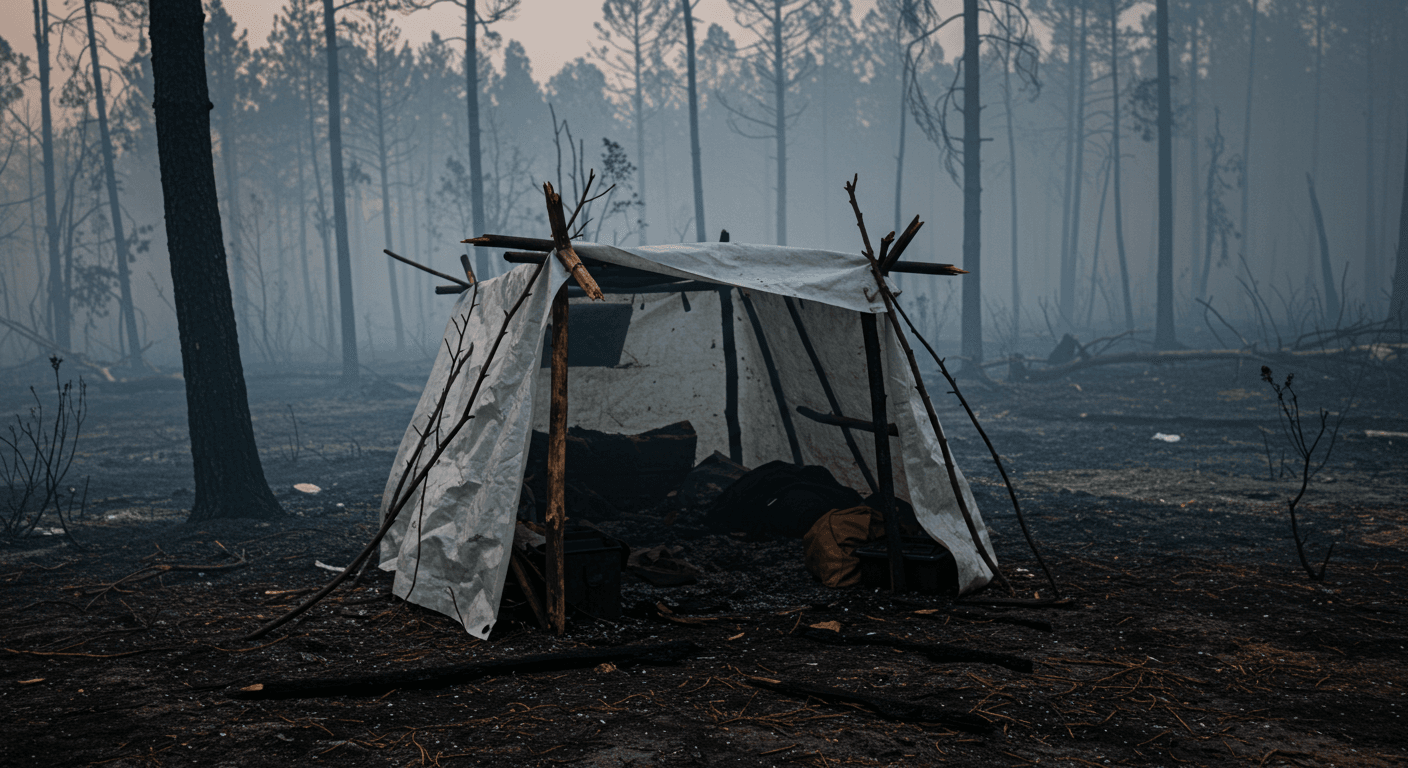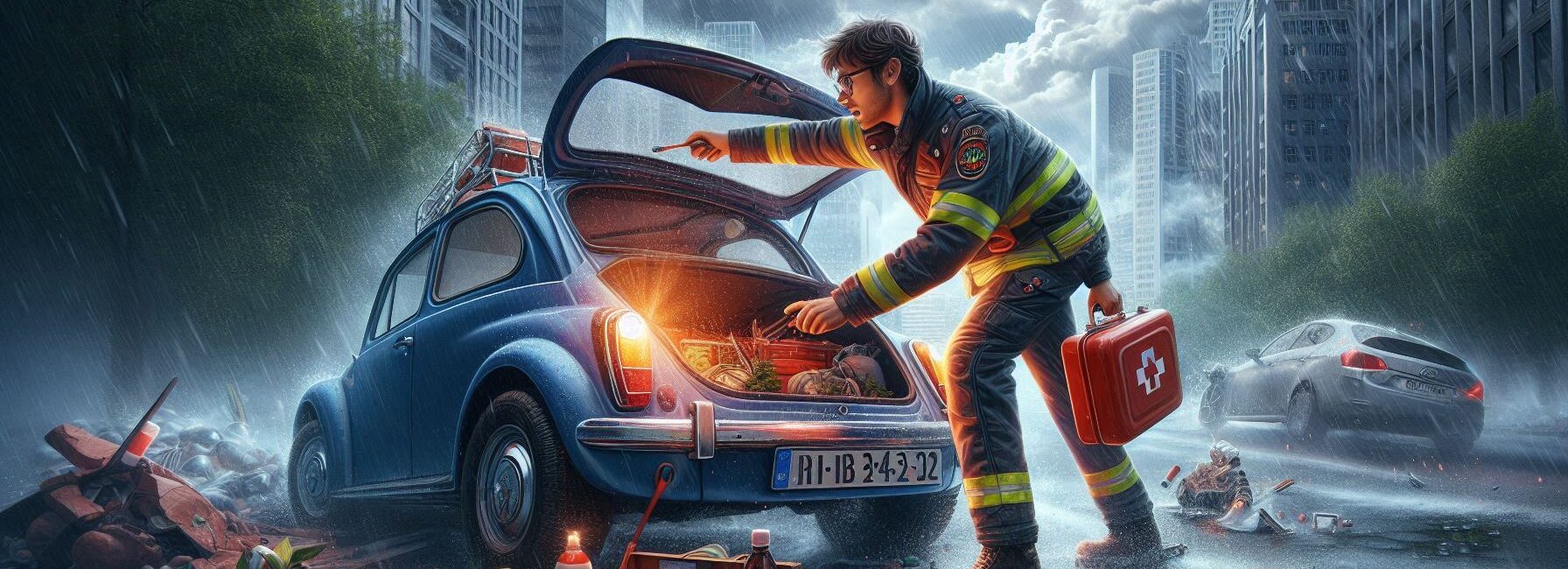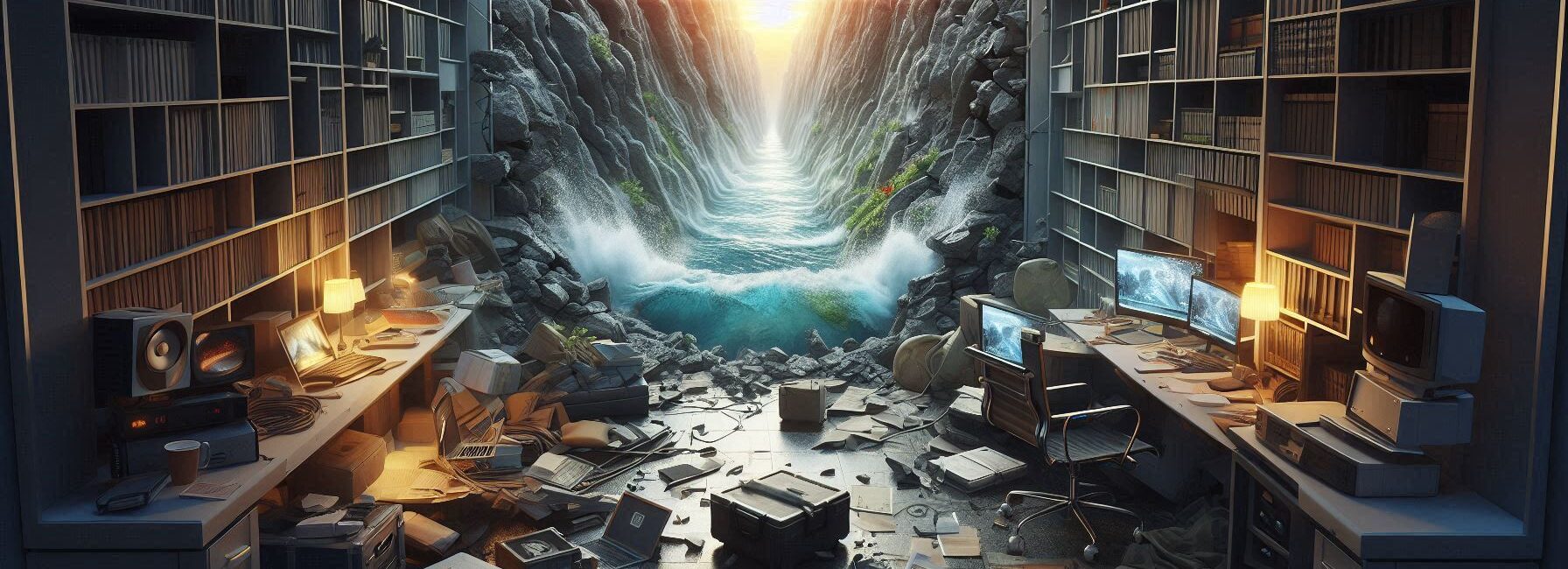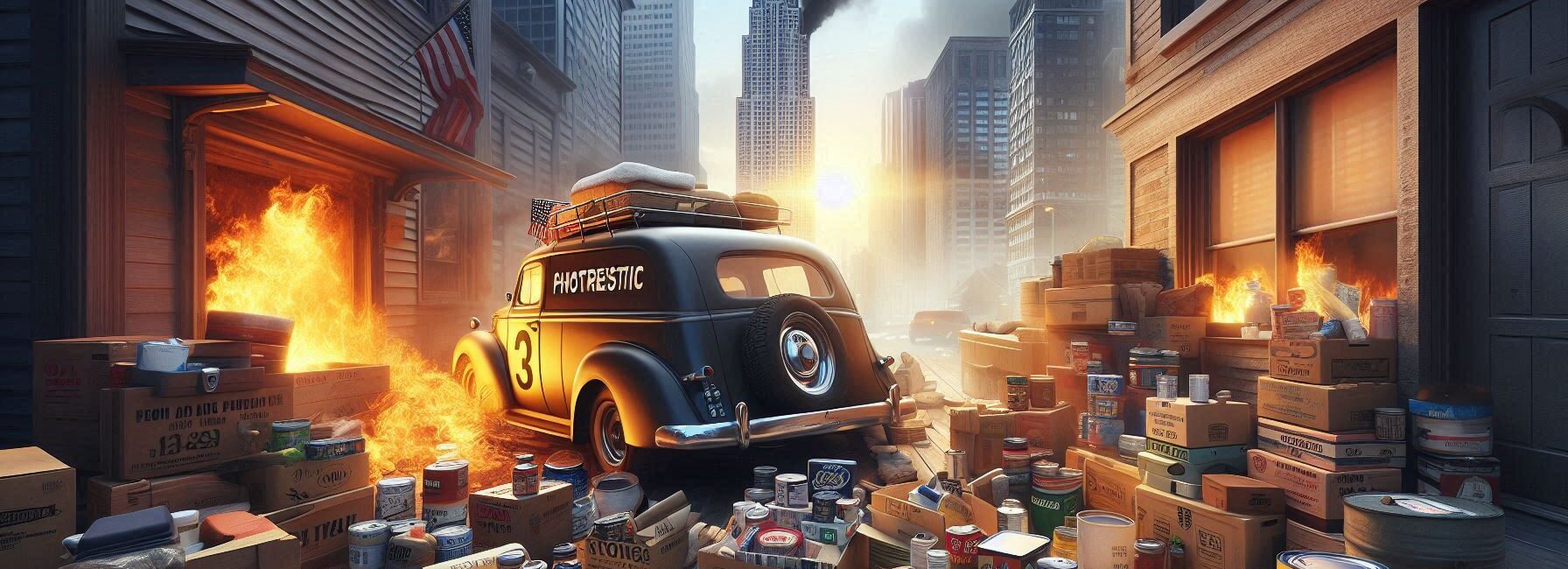Let's be honest: most of us would rather binge-watch our favorite show than think about what to do in an emergency. But here's the thing: being ready isn't just wise; it can save your life! How do you change your “I'll worry about it later” mindset into a plan of action? Get ready, because we're going to talk about being ready for emergencies with a little bit of fun and a lot of helpful suggestions.
What is Emergency Preparedness?
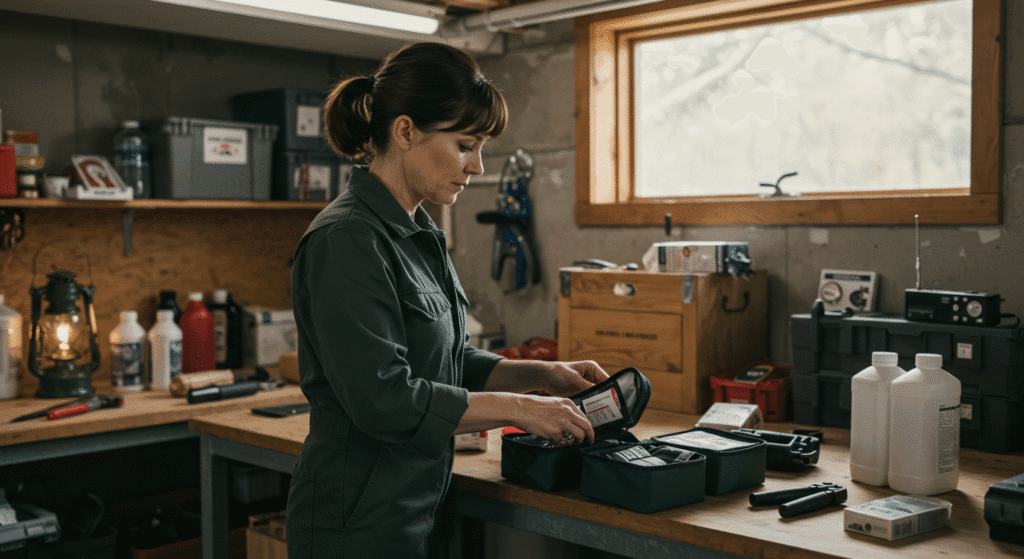
First, let's be sure we know what we mean by being ready for an emergency. It sounds fancy, but it's actually just a technique to get ready for things that happen out of the blue, like natural disasters or surprise family visits (you know the ones!). It means having strategies ready so you can act swiftly and efficiently when things go wrong. You could think of it as training to be a superhero without the tights.
Please Note: This post may contain affiliate links. If you click one of them, we may receive a commission at no extra cost to you. As an Amazon Associate, I earn from qualifying purchases.
You might be wondering why this is important. Think about this: emergencies can come at any time, and they typically happen when you least expect them. Imagine that you're relaxing on a Sunday morning with a cup of coffee when the weather report suddenly says there's a tornado warning. Or maybe you're having a nice, quiet night at home when the ground starts to shake because an earthquake thought it was time for a little dance party. Knowing what to do in these instances can mean the difference between being calm and panicking.
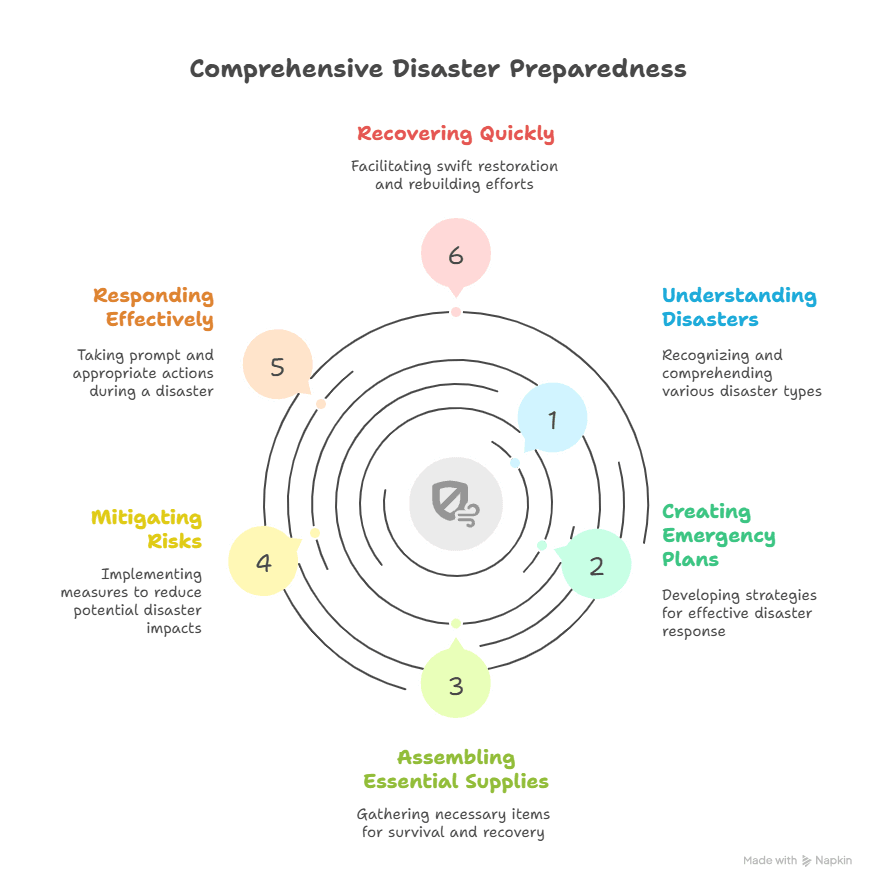
Think about how calm you would be if everyone else was running about looking for their shoes or trying to find out how to use their emergency radio. It's like having powers that are out of this world! While everyone else is running around like headless chickens, you may be the one in charge of making sure your family or friends follow a plan. To be honest, who wouldn't want that title? “Calmest Person in Crisis” sounds a lot cooler than “Panicked Mess,” don't you think?
Also, being ready makes you feel like you can manage everything life throws at you. It's not enough to just get by; you have to do well even when things are hard. It feels good to have a plan and know where your emergency gear is. You're not just waiting for aid to come; you're ready to do something! And let's be honest: who doesn't want to feel like they are in charge of their own life, especially when things are going crazy?
Also, consider about the people around you. If you stay cool and collected during an emergency, it will help everyone else stay calm too. Your calmness can make loved ones feel better and keep their anxiety levels down. Instead of seeing you as someone who panics when they see spilled milk (or worse), they will see you as a leader. So, being prepared for emergencies is good for you and your community since it makes everyone feel safer and more secure.
In short, understanding how to act quickly in an emergency turns fear into action, which is a talent we should all work on! So the next time someone rolls their eyes at your intentions to be ready for disasters, tell them that being ready is not just wise, it's also heroic!
Building Your Emergency Kit
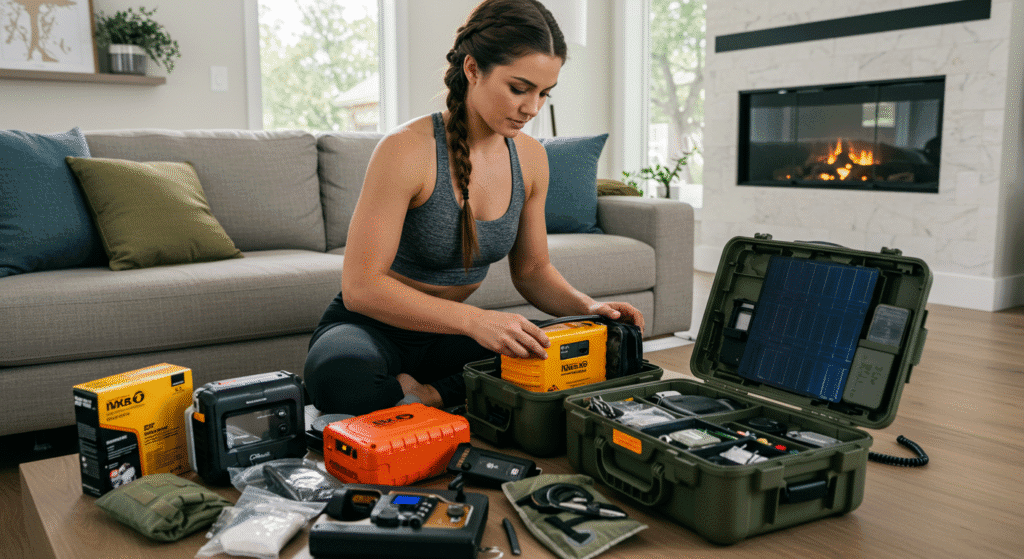
*** Shop for Survival Gear - Tools - Kits ***
Survival Gear - Bags and Backpacks - Knives - Boots/Footwear - Communication
Outdoor Cooking - Gloves - Hydration - Dry Boxes - Water Filtration Systems
Tents - Sleeping Bags - First Aid Kits - Multi-Tools - Flashlights - Fire Starters
Navigation - Survival Food - Night Vision - Headlamps - Stun Guns - Binoculars
Now that we've warmed up, let's speak about your emergency kit, which is one of the most important things to have on hand. Think of this as your survival treasure trove full of things that could help you survive the day (or possibly save your life). You don't have to go overboard here; just be sensible.
Begin with the basics, such as water and food that won't go bad. Having canned beans on hand for those rainy days—or sunny days when you're too lazy to cook—really does indicate “I'm ready for anything.” You should have enough for at least three days for each person in your house. Don't forget things like batteries, flashlights (since darkness isn't your friend), first-aid kits, and critical papers that you keep safe from other people.
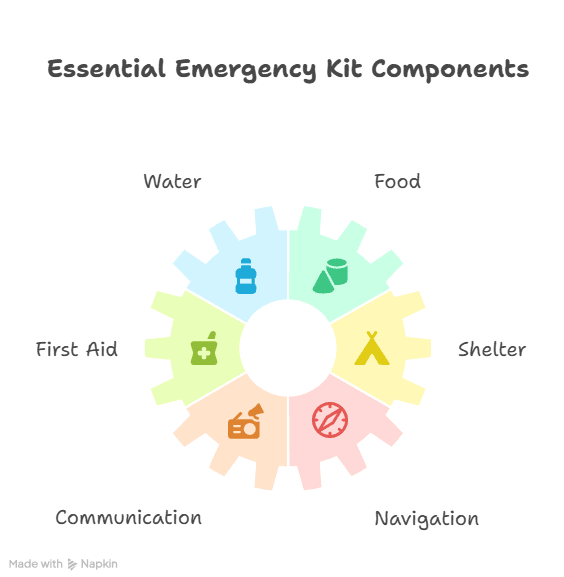
Some people, interestingly, include entertaining things to their emergency kits, including playing cards, books, or even little board games that may be taken on trips. If you have to wait out an emergency, you might as well have something fun to do. Imagine being stuck in your house during a hurricane with only a flashlight and some tinned beans. Not the best way to keep spirits high!
So why not add a deck of cards? While you wait for the weather to clear, you might challenge your family to a big game of Go Fish or Poker. It's like a short vacation from real life. Who knew that being ready for an emergency could be so much fun? And don't forget about books; they can take you to a whole new universe. Reading is a terrific way to get away from the chaos of the real world, whether you're diving into a thrilling mystery novel or getting lost in an adventure story.
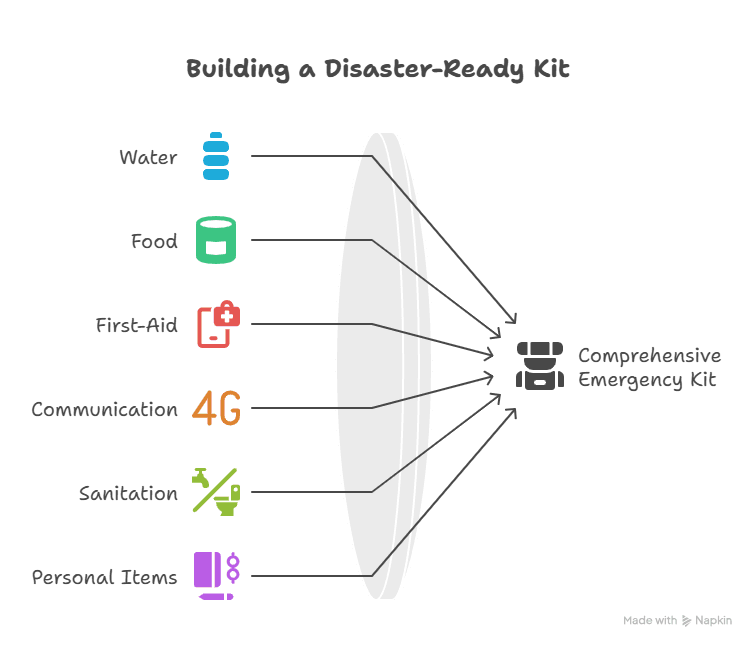
But keep in mind that no one wants to play Monopoly amid a real tragedy unless they want to add to their stress. That game has generated more fights between family members than talking about politics at Thanksgiving dinner! Instead of Monopoly's unending property dealing and backstabbing, choose games that encourage teamwork and fun. Cooperative games like Pandemic (I know, it's ironic) can be fun and informative at the same time, and they can also teach kids how important it is to work together when things go rough.
And while we're talking about things to do for fun, you might want to include puzzles or coloring books to your pack. Puzzles need you to pay attention and be patient, which is a fantastic way to take your mind off of things when you're feeling anxious. Coloring, on the other hand, can be really helpful; filling in those complicated designs with bright colors can be very calming. And who doesn't adore feeling like a kid again?
In short, bringing along some enjoyable things with your important things might turn a stressful scenario into a chance to bond and have fun. Emergencies might throw our lives off for a short time, but having techniques to keep our spirits up makes all the difference! So go ahead and be the person who makes chaos fun with your well-thought-out emergency kit!
Creating an Emergency Plan
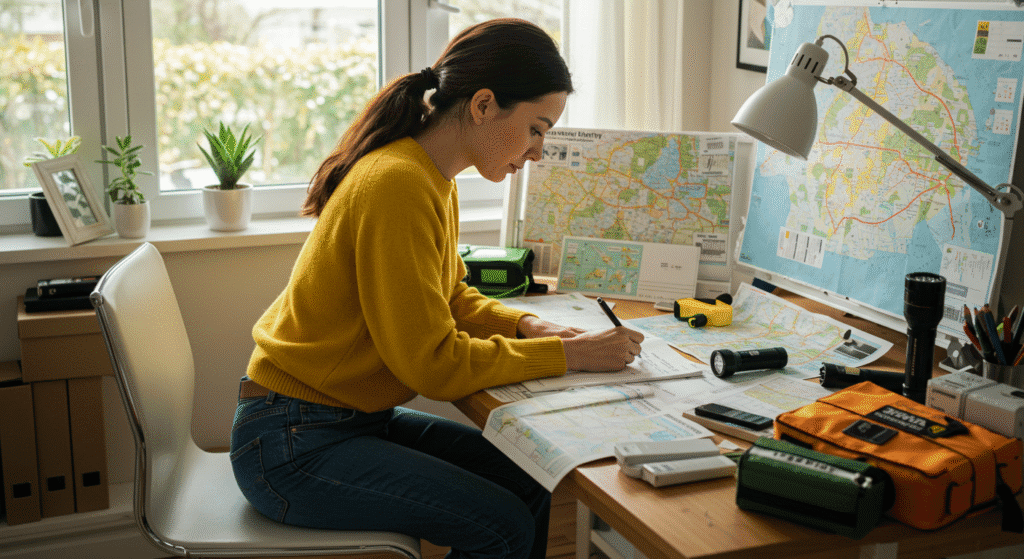
It's nice to have an emergency pack, but what good is it if you don't know how to use it? This leads us to making an emergency plan, which is like a map that shows you how to go through possible pandemonium. You might believe you're getting ready for an espionage operation (insert dramatic music), but it's not as hard as you think!
First, get everyone in your family together and talk about different situations, including fires, floods, storms, and so on. Set up ways for everyone to get out of your house and plan places outside where everyone can meet up if they need to. I mean, it's better than playing hide-and-seek and wondering about whether Uncle Bob got it out alive!
Next: talking! In today's tech-savvy world, texting seems easier than talking face-to-face (really, who wants to hear someone chew as they talk?), so it's important to make sure everyone knows how to get in touch with each other in an emergency, even if cell towers decide they've had enough! Imagine this: the power goes out, your phone battery dies, and you're trying to recall the number of that one friend you haven't called since 2010. Not the best thing that could happen!
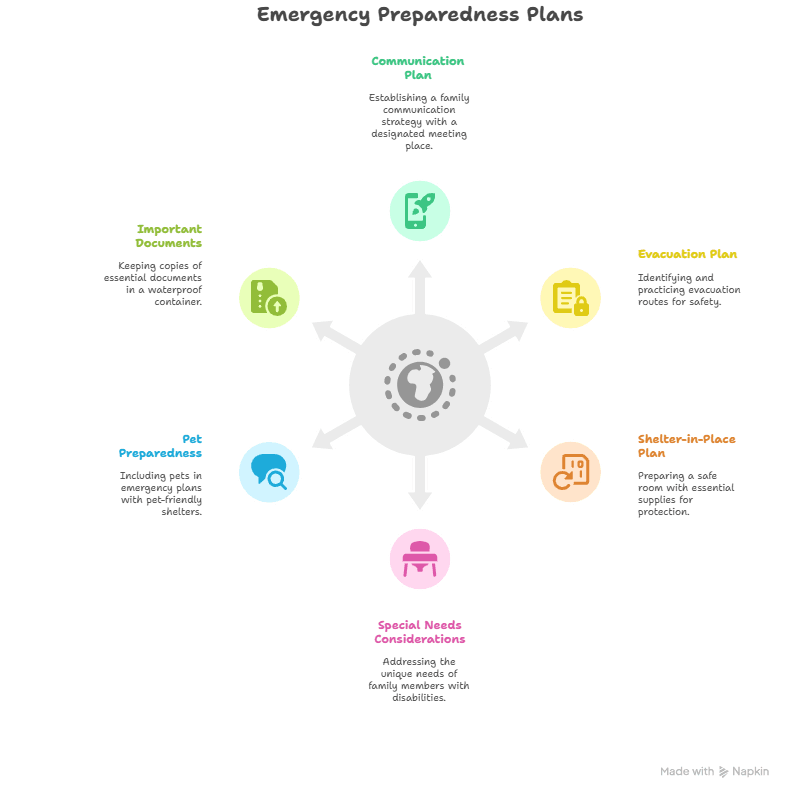
To be fair, creating a good communication plan can actually help. Setting up group chats before a crisis is an excellent idea. This way, everyone in your group can stay up to date with only a few touches on their screens. You might even come up with a cool name for your group, like “The Emergency Avengers” or “Crisis Crew.” Who doesn't want to add a little superhero flair to important conversations? Just think about providing weather reports and memes at the same time. Laughter is important when things are tough!
But we shouldn't depend on technology alone. In an emergency, cell towers can get too busy or break down, leaving us stuck like a sock in a dryer. It's a good idea to write down important phone numbers and keep them in a safe place, such an emergency pack or a bulletin board at home. I mean, do we even know how to recall phone numbers? These days, it seems like our brains are more wired for speed-dialing than for remembering things.
You could also want to make a family emergency contact card that has all the vital numbers in one place, like those of family members, friends, and local authorities. This card is small enough to put in a wallet or backpack, and it can be used as a quick reference when you start to fear. Believe me, when things go wrong, having this information on hand will make you feel like the calmest person in the room.
It's interesting that rehearsing your communication plan can also teach you a lot! Set up frequent family exercises where everyone practices getting in touch with each other in different ways, like texting, calling, or even using smoke signals (just kidding!). These drills help everyone figure out what works best for them and find any problems before a real emergency happens.
In conclusion, good communication is particularly important during emergencies. It keeps spirits high and makes sure everyone stays connected, even when things go tough. When it matters most, you'll have a strong safety net for you and your loved ones if you mix tech-savvy with good old-fashioned planning and practice.
Staying Informed
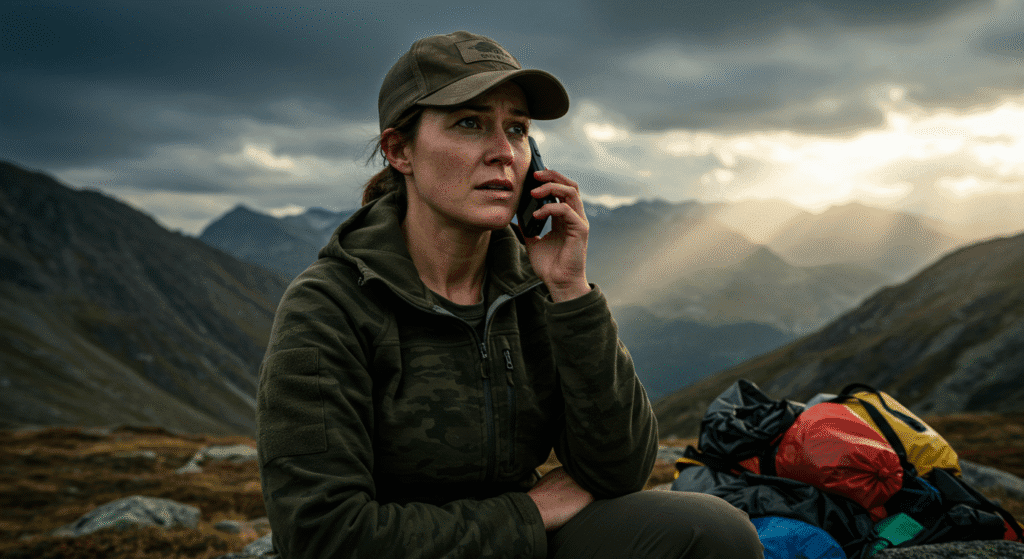
In our fast-paced digital age, it's never been easier—or more important—to stay informed during emergencies. You'd be surprised at how much information we can get to if our phones are charged and within reach (which they generally aren't). So let's be honest about how to stay up with local news and weather applications.
You might want to sign up for alerts from local authorities about severe weather warnings or updates on community safety. These alerts will help you stay ahead of any surprises that Mother Nature sends your way, like surprise snowstorms that make us all wonder why we didn't stock up on hot chocolate sooner!
It's also important to note that there are social media sites where people in the community can post updates in real time during disasters. If you were to scroll through Twitter and see that there was a blockage ahead because of water, it would be useful information! You can access the knowledge of everyone in your community without even getting up from your couch. It's like having a superpower. Honestly, who would have thought that scrolling could be so helpful?
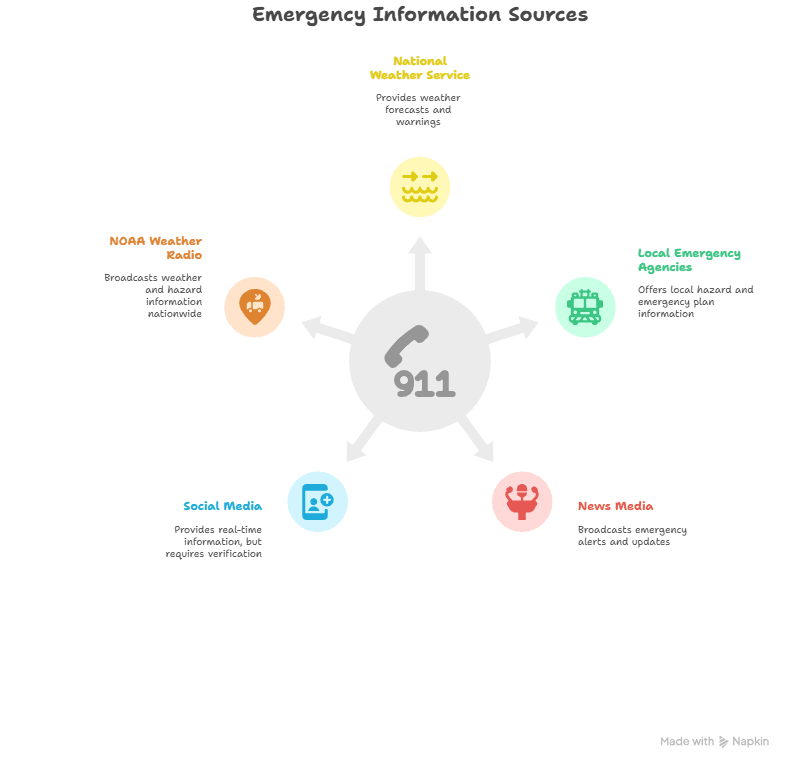
In times of trouble, sites like Twitter and Facebook may be quite helpful. People regularly make live updates about what's going on in their area, such whether the grocery store still sells bread or if it has become a swimming pool. When things are crazy, this kind of information is worth its weight in gold. It also lets you connect with other people who are going through the same things, which gives you a pleasant, fuzzy sensation of being together. “Hey, we're all in this together!” goes from being a cliché to a collective motto.
It's only fair to say that not all social media postings are the same. Some posts might come from friends who intend well but are spreading rumors or exaggerated stories that cause more harm than good. I love a good meme as much as the next person, but it's important to check any important information before you act on it. You might want to follow your city or county's official accounts. They typically give reliable and up-to-date information during emergencies.
On the other side, becoming involved with local groups online might also make your community feel more ready. There are pages or clubs in many communities that are only about emergency response and resources. Joining these organizations will not only keep you up to date, but it will also provide you access to useful advice from others who have lived through hurricanes (both real and metaphorical).
By the way, don't forget how powerful hashtags may be! When there are problems, certain tags become popular and places to share information. For example, #HurricanePrep and #EarthquakeSafetyTips. You can use these hashtags to cut through the noise and focus on what's most important right now.
Using social media effectively during an emergency can actually make your whole preparedness plan better, which is interesting. By keeping up with real-time updates from credible sources and other community members, you're not only getting information, but you're also making relationships that may be very useful in the future.
In short, include social media in your emergency plan is a sensible idea! It gives people instant access to important information and helps build community spirit during tough times. What could be better? Just remember to always check twice before making any huge decisions based on those tempting tweets.
Practicing Your Skills
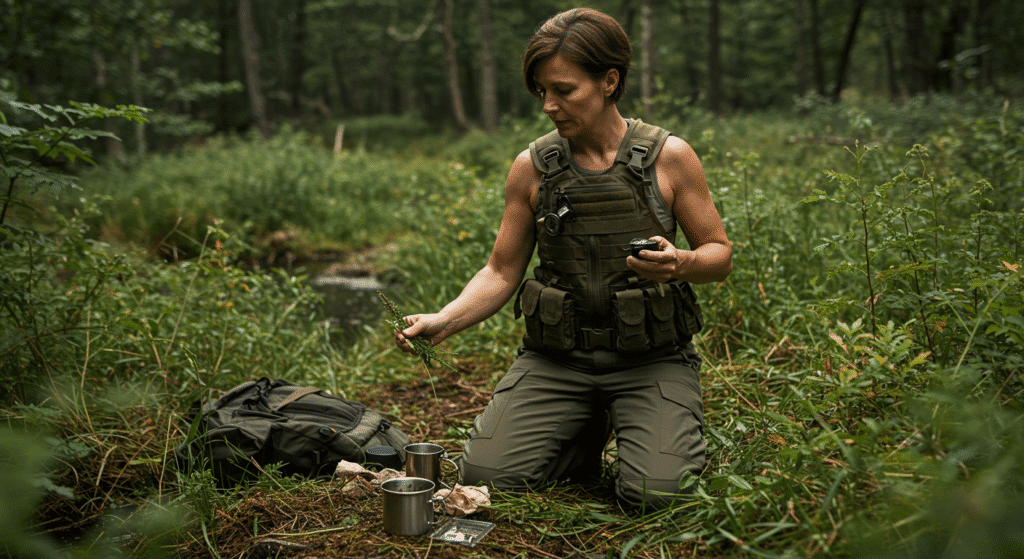
Don't overlook this important part of the puzzle: practice makes perfect! You wouldn't expect someone who has never run a marathon to suddenly finish one without practicing prior. The same goes for emergencies! Doing exercises on a regular basis helps you remember the abilities you need in an emergency.
Every few months, set aside time for fire drills at home or even practice evacuating in different situations you've talked about before. Who knew that saving lives could be so much fun? Everyone loves a little role-play now and then.
You don't have to feel like this is boring either; make it more fun by making it into a competition between family members or roommates. Imagine this: you're all in the living room when someone suddenly yells, “Who can get their emergency kit the fastest?” Out of nowhere, it feels like a scene from an action movie where everyone jumps into action and races against the time. This not only boosts morale, but it also helps people work together when things go wrong.
Who would have thought that getting ready for crises could be so much fun? You might giggle when you trip over your cat or knock over a chair while running to the storage closet. These times make memories that can make even the worst conditions seem better. And let's be honest: when life throws us curveballs, like bad weather or power outages, a little humor may go a long way in keeping our spirits up.
To make things even more fun, think about adding new difficulties every time you practice. One week, you could emphasize on speed: who can put together their emergency bag the fastest? Next time, change things up and see who can fit the most useful things into their bag without going overboard (sorry, no taking that 20-pound teddy bear!). This variation keeps everyone interested and makes them think creatively about what should really be in those kits.
Also, don't forget to give prizes to the people who take part! A small prize, like a homemade trophy created from an old cereal box or just the opportunity to brag, can make these drills more fun. People enjoy a good competition, and when there is something at risk, they take it seriously while still having fun.
These pleasant competitions have another purpose that is interesting: they make sure that everyone knows how to use the things in their emergency kits correctly. Having resources on hand is one thing; knowing how to use them when you're scared is another. Team members acquire important skills and methods they will need in real situations by practicing together in a fun way.
These drills also help people work together by making them talk to each other. When family members race against each other or work together to organize supplies, people naturally start talking about their worries and opinions about possible tragedies. This open conversation is highly important because it gives everyone a chance to say what they are worried about and come up with solutions together.
Making your disaster preparedness activities into competitions not only makes them more fun, but it also brings your family or group of friends closer together. So why not get your friends together for some friendly competition? We might as well prepare for emergencies in style, because we have to do it anyhow. And who knows, we might even have some fun along the way!
Conclusion: Be Ready For Anything
At first look, getting ready for an emergency may seem like a lot of work, but breaking it down into smaller, more manageable tasks makes it less stressful (and far more doable!). By making an emergency kit just for you and making plans that you can follow through with, you'll be ready for whatever life throws at you next.
So go ahead and take responsibility today by making these methods a part of your daily life until they become second nature. Keep in mind that preparation isn't just about getting through tough times; it's also about thriving in the face of uncertainty. Who wouldn't want that kind of power?
Frequently Asked Questions
Why is emergency preparedness important?
Emergencies are unpredictable, and having plans and supplies ready improves safety, reduces panic, and increases your ability to respond quickly.
What should a basic emergency kit include?
Water, non-perishable food, flashlights, batteries, first-aid supplies, important documents, and small comfort items are commonly recommended.
How much water should be stored per person?
A commonly recommended baseline is one gallon of water per person per day for at least three days.
Do emergency kits benefit from including entertainment items?
Yes, simple games or books can help reduce stress, maintain morale, and keep people occupied during long waiting periods.
Why does communication planning matter in emergencies?
Having written contacts, group communication plans, and backup methods ensures you can connect even if cell towers or power fail.
How can social media help during disaster situations?
Verified local accounts, official alerts, and community groups often share real-time updates that supplement traditional news sources.
Why should preparedness skills be practiced regularly?
Drills reinforce memory, increase confidence, reveal gaps in plans, and make emergency responses more automatic under stress.
Suggested Resources
Emergency Preparedness Checklist
https://www.ready.gov/kit
Disaster Preparedness Tips
https://www.redcross.org/get-help/how-to-prepare-for-emergencies.html
Family Disaster Plan Template
https://www.fema.gov/media-library/assets/documents/26318

Kevin Collier is a seasoned survivalist and expert in prepping and homesteading, contributing to WiseSurvive.com. With a deep-rooted passion for self-sufficiency and outdoor survival skills, Kevin shares practical advice, strategies, and resources to help individuals prepare for any challenge. His informative articles cover a range of topics, from essential survival techniques to sustainable living practices, empowering readers to thrive in any situation. Whether you're a novice or a seasoned prepper, Kevin's insights will inspire you to take charge of your readiness and build resilience for the future.

